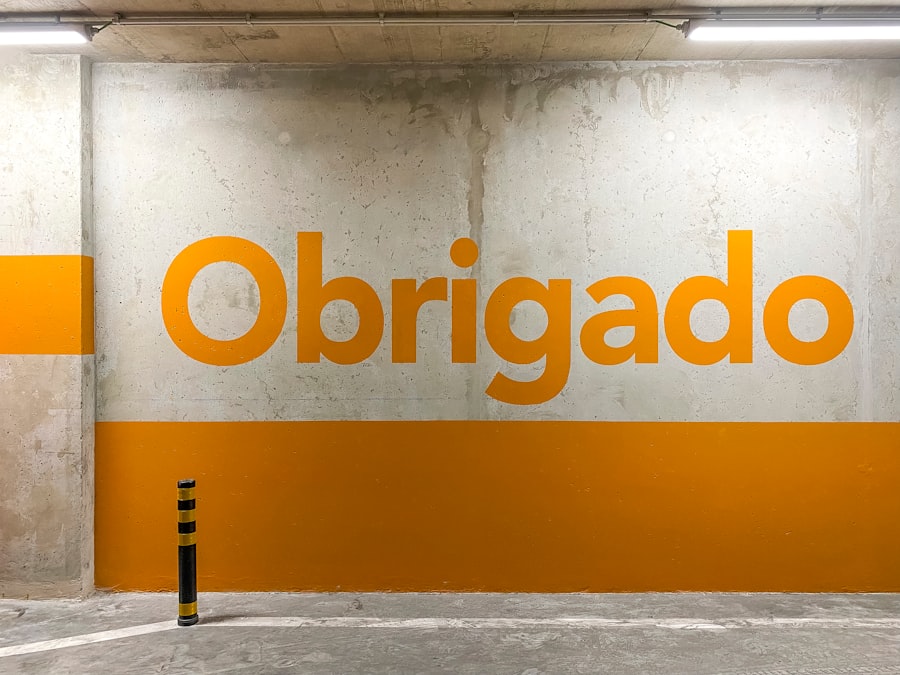In the digital landscape, where competition is fierce and attention spans are fleeting, the role of a search optimization agency has become increasingly vital for businesses seeking to enhance their online presence. These agencies specialize in improving a website’s visibility on search engines, primarily through organic search results. Their expertise encompasses a wide range of strategies, including keyword research, content creation, technical SEO, and link-building.
By employing a combination of these tactics, a search optimization agency aims to drive targeted traffic to a website, ultimately leading to increased conversions and revenue. Moreover, the role of a search optimization agency extends beyond mere visibility. They act as strategic partners, helping businesses understand their target audience and market dynamics.
This involves conducting thorough market research and competitor analysis to identify opportunities for growth. By leveraging data analytics and user behavior insights, these agencies can tailor their strategies to meet the specific needs of their clients. This holistic approach ensures that businesses not only attract visitors but also engage them effectively, fostering long-term relationships that translate into customer loyalty.
Key Takeaways
- A search optimization agency enhances online visibility through expert strategies.
- Effective keyword use and content optimization are crucial for search rankings.
- Social media and backlinking boost site authority and traffic.
- Monitoring metrics helps refine SEO tactics for better results.
- Combining local SEO, paid ads, and agency collaboration ensures sustained growth.
Identifying Key Factors for Online Visibility
Achieving online visibility is not merely about ranking high on search engine results pages (SERPs); it involves a multifaceted approach that considers various factors influencing a website’s performance. One of the primary elements is the quality of content. Search engines prioritize websites that provide valuable, relevant, and well-structured content.
This means that businesses must invest in creating informative articles, engaging blog posts, and multimedia content that resonates with their audience. Additionally, the use of proper formatting, such as headers and bullet points, enhances readability and user experience, which are critical for retaining visitors. Another key factor is website performance, which encompasses loading speed, mobile-friendliness, and overall user experience.
A website that loads slowly or is difficult to navigate can lead to high bounce rates, negatively impacting its search rankings. Search optimization agencies often conduct technical audits to identify issues that may hinder performance. They may recommend optimizing images, leveraging browser caching, or implementing responsive design to ensure that the website functions seamlessly across various devices.
By addressing these technical aspects, businesses can significantly improve their chances of achieving higher visibility in search results.
Utilizing Keywords and Content Optimization

Keywords serve as the foundation of search engine optimization (SEO), acting as the bridge between what users are searching for and the content that businesses provide. A search optimization agency employs extensive keyword research to identify terms and phrases that potential customers are using in their queries. This process involves analyzing search volume, competition levels, and user intent to select the most effective keywords for targeting.
Once identified, these keywords must be strategically integrated into website content, including titles, headings, meta descriptions, and body text. Content optimization goes hand in hand with keyword utilization. It is not enough to simply sprinkle keywords throughout the text; the content must be crafted in a way that is engaging and informative while still being optimized for search engines.
This includes using synonyms and related terms to create a natural flow of information that appeals to both users and search algorithms. Additionally, incorporating multimedia elements such as images, videos, and infographics can enhance user engagement and dwell time on the site, further signaling to search engines that the content is valuable.
Leveraging Social Media and Backlinking Strategies
| Strategy | Key Metrics | Typical Range | Impact on SEO | Notes |
|---|---|---|---|---|
| Social Media Engagement | Likes, Shares, Comments, Followers Growth | 5% – 15% monthly growth | Increases brand visibility and referral traffic | Higher engagement can lead to more organic backlinks |
| Backlink Quantity | Number of backlinks acquired | 10 – 100+ per month (varies by niche) | Improves domain authority and search rankings | Focus on quality over quantity for best results |
| Backlink Quality | Domain Authority (DA) of linking sites | DA 30 – 90+ | High DA links boost SEO more significantly | Links from relevant, authoritative sites are preferred |
| Referral Traffic from Social Media | Number of visitors from social platforms | Varies widely; 10% – 40% of total traffic | Drives targeted traffic and potential conversions | Consistent posting and engagement improve referral rates |
| Anchor Text Diversity | Variety of anchor texts used in backlinks | Balanced mix of branded, exact match, and generic | Prevents penalties and improves natural link profile | Over-optimization can harm rankings |
| Content Sharing Frequency | Number of posts shared on social media | 3 – 7 posts per week | Maintains audience interest and increases reach | Quality content encourages backlinking and sharing |
Social media platforms have emerged as powerful tools for enhancing online visibility and driving traffic to websites. A search optimization agency can help businesses develop a robust social media strategy that aligns with their overall SEO goals. By creating shareable content and engaging with followers, businesses can increase brand awareness and attract new visitors to their websites.
Social media also provides an avenue for businesses to connect with their audience on a more personal level, fostering community engagement and loyalty. Backlinking is another critical component of SEO that cannot be overlooked. Backlinks are links from other websites pointing to a business’s site, serving as endorsements of credibility and authority in a particular niche.
A search optimization agency employs various strategies to acquire high-quality backlinks from reputable sources. This may involve guest blogging, influencer partnerships, or creating shareable content that naturally attracts links from other sites. The quality and quantity of backlinks significantly influence a website’s authority in the eyes of search engines, making it essential for businesses to prioritize this aspect of their SEO strategy.
Monitoring and Analyzing Performance Metrics
To gauge the effectiveness of SEO efforts, continuous monitoring and analysis of performance metrics are crucial. A search optimization agency utilizes various tools and analytics platforms to track key performance indicators (KPIs) such as organic traffic, bounce rates, conversion rates, and keyword rankings. By analyzing this data, agencies can identify trends and patterns that inform future strategies.
For instance, if certain keywords are driving significant traffic but have low conversion rates, it may indicate a need for content refinement or adjustments in the user journey. Furthermore, monitoring performance metrics allows businesses to stay agile in their SEO efforts. The digital landscape is constantly evolving, with search engine algorithms frequently updated to enhance user experience.
By keeping a close eye on performance data, agencies can quickly adapt their strategies in response to changes in user behavior or algorithm updates. This proactive approach ensures that businesses remain competitive in their respective markets while maximizing their return on investment in SEO initiatives.
Implementing Local SEO and Google My Business Optimization

For businesses with a physical presence or those targeting local customers, local SEO is an essential component of their overall strategy. Local SEO focuses on optimizing a business’s online presence to attract customers from specific geographic areas. A search optimization agency can assist in implementing local SEO tactics such as optimizing Google My Business (GMB) listings, ensuring accurate business information is displayed across online directories, and encouraging customer reviews.
Google My Business optimization involves claiming and verifying a business’s listing on Google Maps and search results. This listing provides essential information such as location, hours of operation, contact details, and customer reviews. A well-optimized GMB profile can significantly enhance local visibility by appearing in local pack results when users search for relevant services nearby.
Additionally, agencies may implement local keyword strategies to target specific geographic terms in website content, further increasing the likelihood of attracting local customers.
Utilizing Paid Advertising and PPC Campaigns
While organic search optimization is crucial for long-term success, many businesses also benefit from incorporating paid advertising into their marketing strategies. Pay-per-click (PPC) campaigns allow businesses to display ads on search engines and social media platforms, driving immediate traffic to their websites. A search optimization agency can help design effective PPC campaigns by conducting thorough keyword research to identify high-converting terms and creating compelling ad copy that resonates with target audiences.
PPC campaigns offer several advantages over organic strategies; they provide immediate visibility on SERPs and allow for precise targeting based on demographics, interests, and behaviors. Additionally, agencies can continuously monitor campaign performance metrics such as click-through rates (CTR), conversion rates, and return on ad spend (ROAS) to optimize campaigns in real-time. By leveraging both organic SEO efforts and paid advertising strategies, businesses can create a comprehensive digital marketing approach that maximizes their online presence.
Collaborating with a Search Optimization Agency for Long-Term Success
The collaboration between businesses and search optimization agencies is pivotal for achieving sustained success in the digital realm. Engaging an agency allows businesses to tap into specialized expertise that may not be available in-house. This partnership fosters innovation as agencies bring fresh perspectives and industry insights that can drive effective strategies tailored to specific business goals.
Moreover, long-term collaboration enables agencies to develop a deep understanding of a business’s unique challenges and objectives over time. This familiarity allows for more effective strategy adjustments based on performance data and market changes. As businesses evolve and grow, so too do their SEO needs; having an agency as a dedicated partner ensures that they remain agile in adapting to these changes while consistently working towards enhancing online visibility and driving growth.
In conclusion, the role of a search optimization agency is multifaceted and essential for businesses aiming to thrive in an increasingly competitive digital landscape. From understanding key factors influencing online visibility to implementing effective strategies across various channels such as content optimization, social media engagement, local SEO efforts, paid advertising campaigns, and ongoing performance analysis—these agencies provide invaluable support for long-term success in achieving digital marketing goals.




